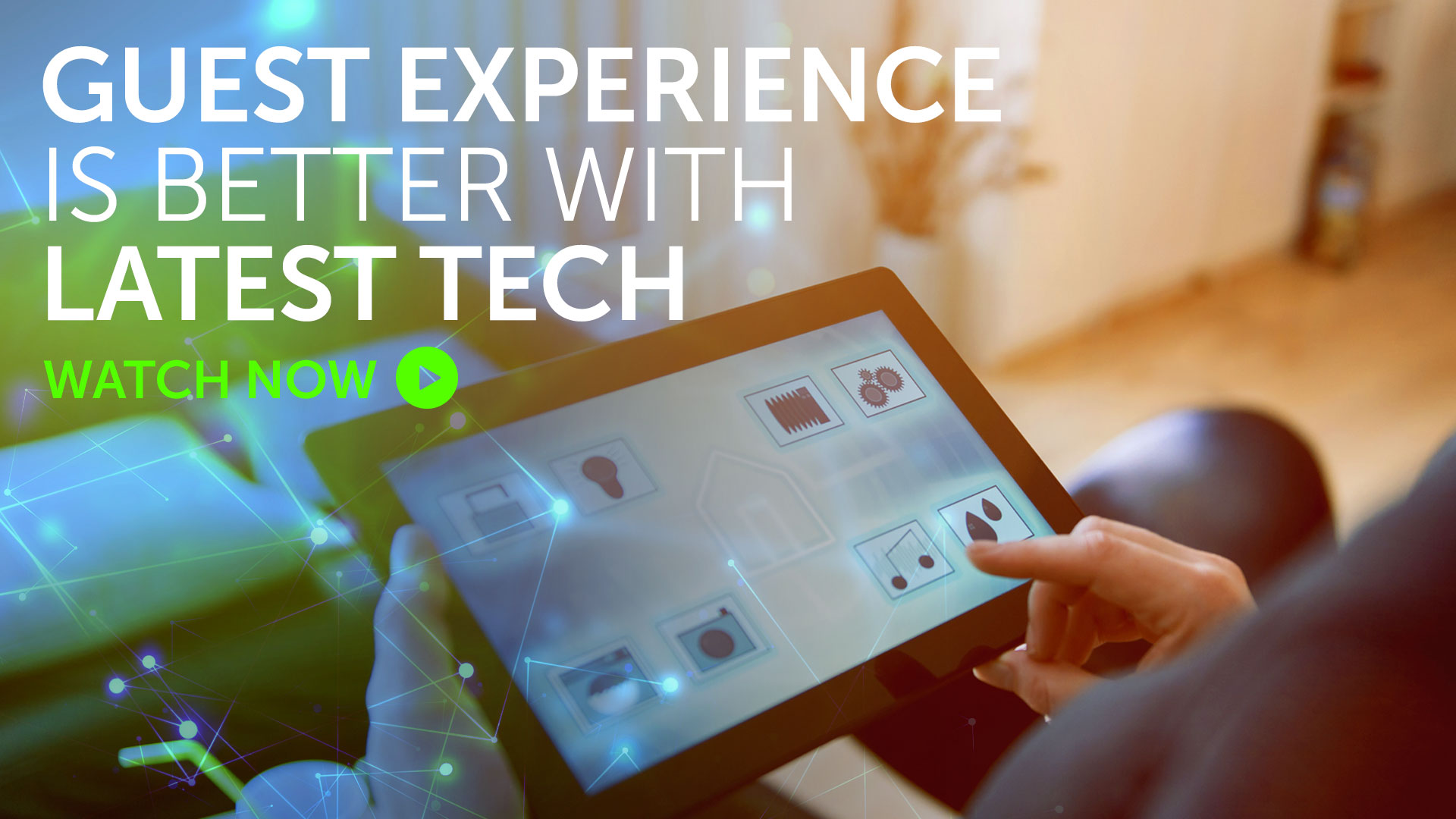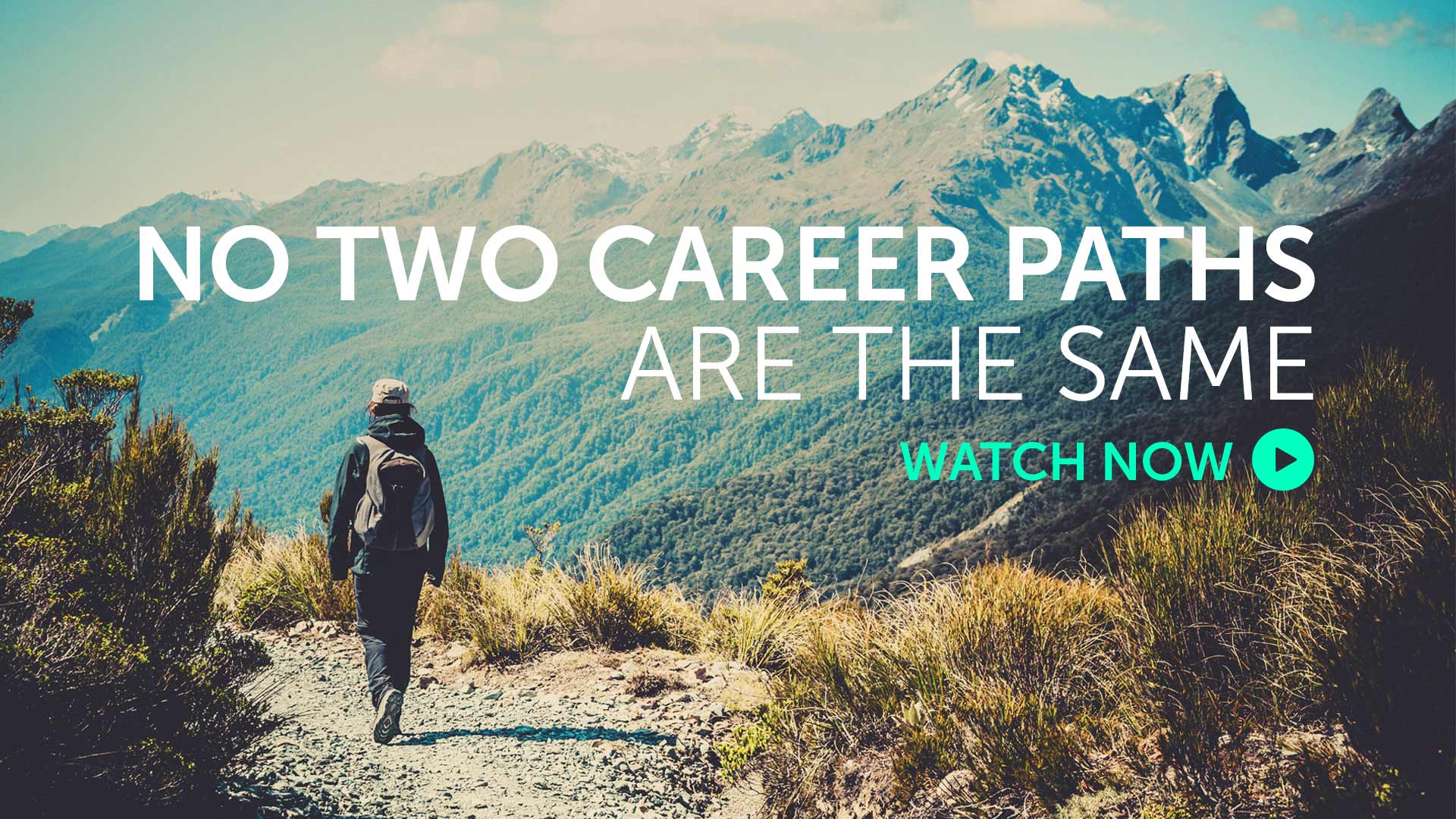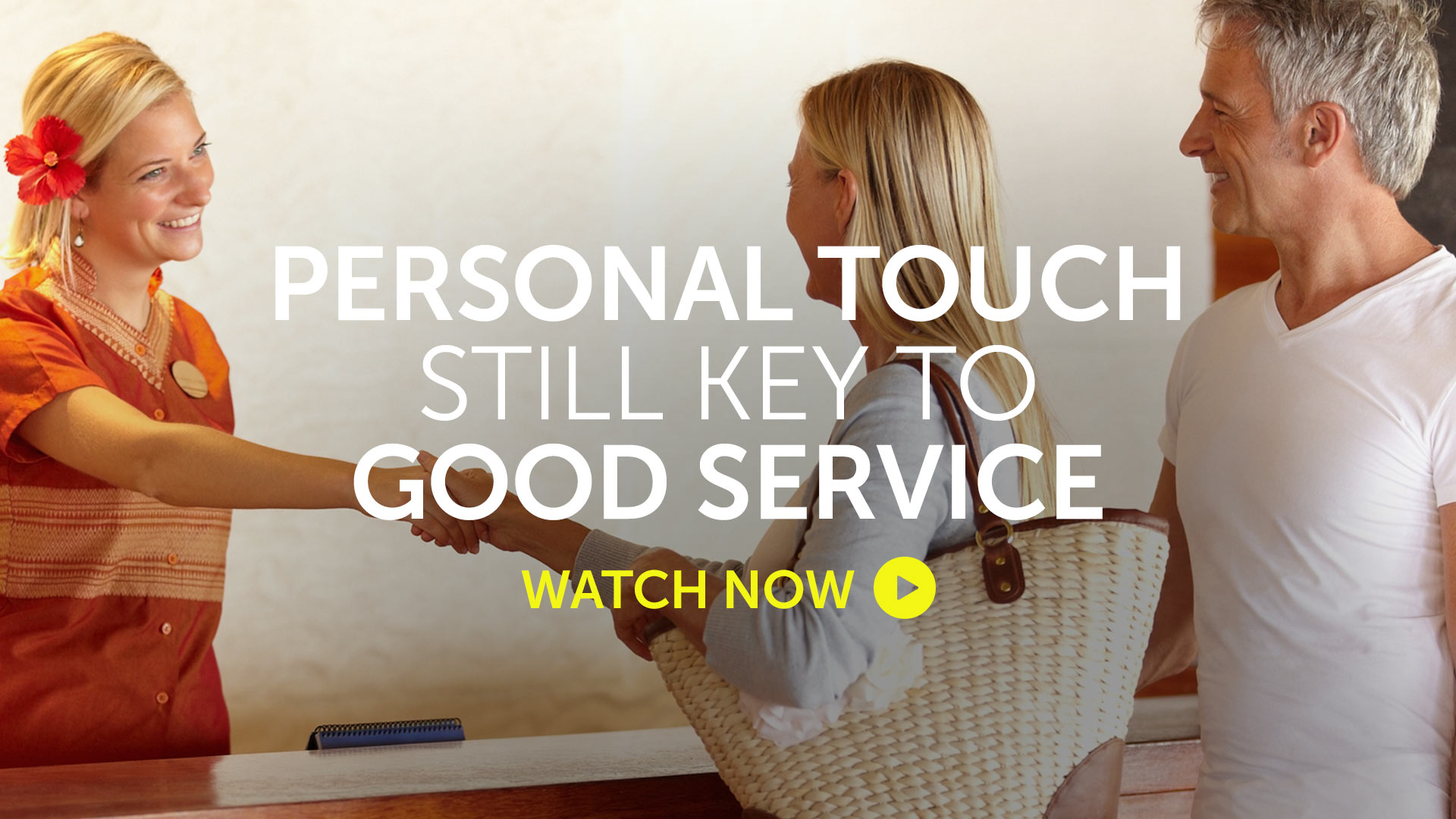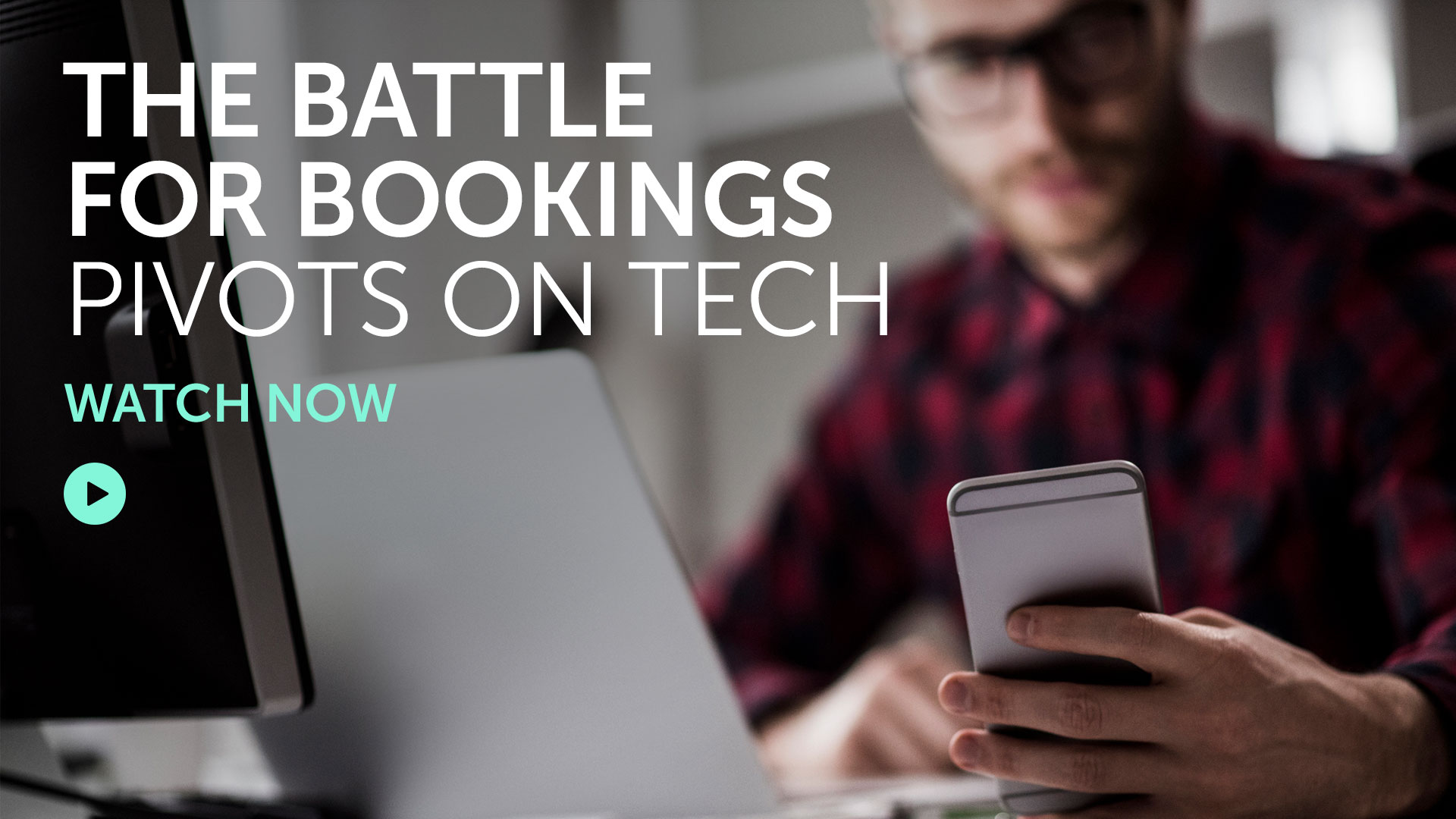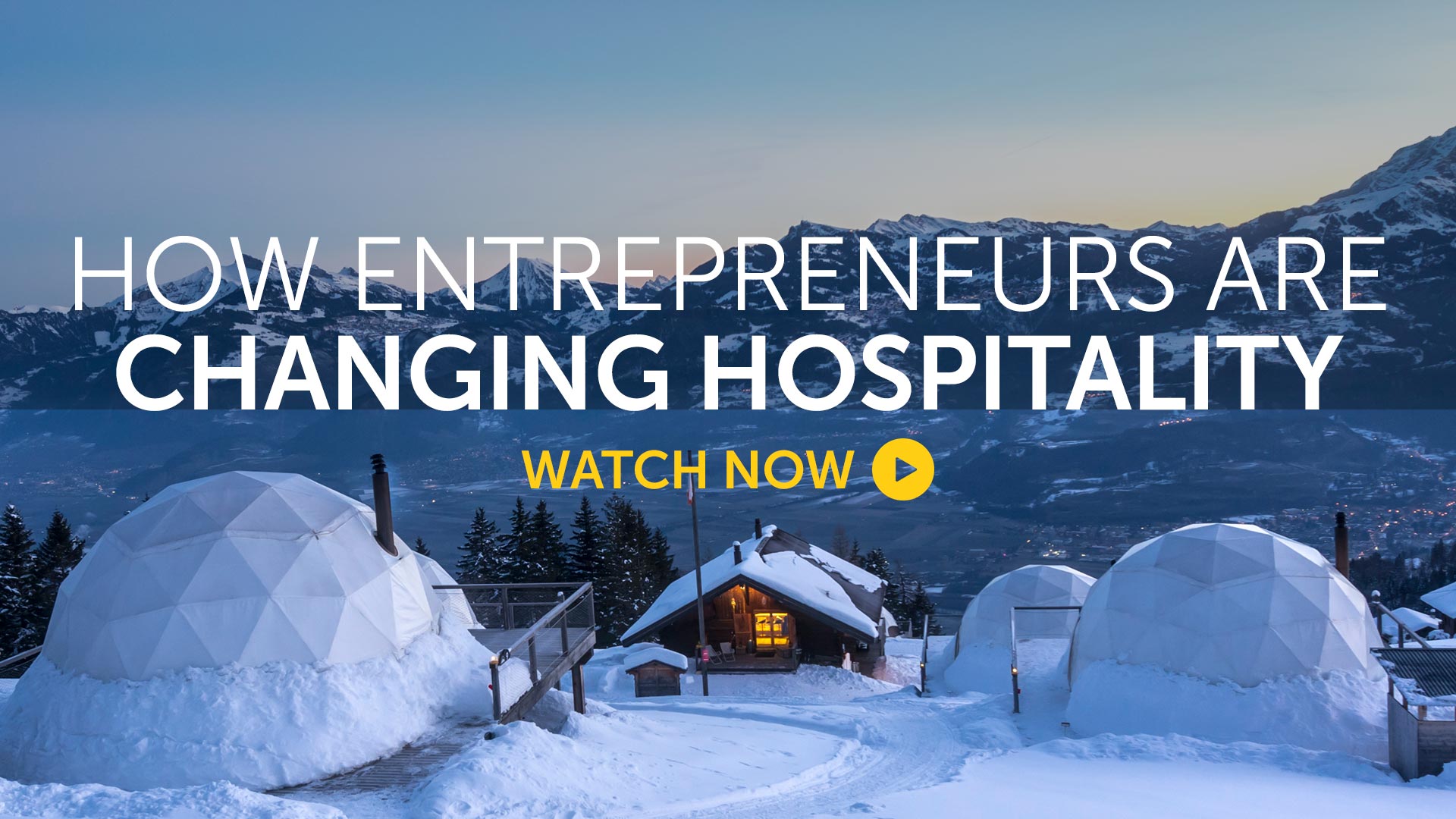In a new report from Zebra Technologies, 66% of hospitality guests said that they have a better experience when hotels use the latest technology. Mobile phones and location technology are at the forefront of technology developments in hotels. Smart phone uses range from unlocking rooms, to receiving text notifications about room readiness, to receiving location based offers. The report found that 40% of guests currently use hotel apps and 70% of guests want to use technology to speed up the service they receive.
In these videos four experts discuss upgrading experience with technology:
For a long-time, hospitality businesses have been seeking to create more personalised experiences for guests through technology. The results of Zebra’s 2016 Hospitality Vision Study suggests that guests today are interested in receiving personalised treatment across the room, entertainment, and concierge elements of their stay. 86% say they are interested in having a room selected based on personal preferences such as room/window location and bed configuration. 81% say they would like to receive a personalised list of restaurants/ activities and directions, and 70% say they would be interested in receiving location based coupons and specials.
Hotels are starting to look at what they can do when they have the ability to track their guests’ locations. 74% of surveyed hotels/resorts are planning to implement location-based technologies within the next year. They would be able to track a location when the guest has a hotel app on their phone that they give permission to access their location data – in the same way that a map app uses the phones location to show a route. Then the hotel can send messages and offers that are more relevant to the guest at the time, and would know whether the guest is inside the hotel or out-and-about.”
If you’ve been sent to this page and you’re not yet on the circulation list to receive these regular briefings and you would like to sign up, you can do see here. It’s free.
Video clips produced by ybc.tv for the Hospitality Channel, including interview from industry conferences such as the IHIF conference as well as specific Hospitality Channel shoots.
